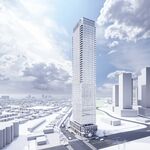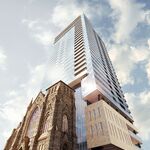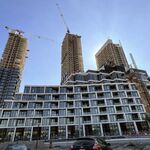Woodbridge_Heights
Senior Member
That wasn't an insult, that was a question.
If adequate farmland is an issue, since you and others here are very pro-densification of urban centers, then why not advocate for vertical farming? Or rooftop farming?
I don't know why everyone is also saying that if we build this highway, it is condoning sprawl and automatically bring sprawl. Is it not possible to build this with legislation to prevent extra sprawl around it? We have plenty of highways that go through greenbelt without sprawl around them there.
I've driven all across the US, which has an EXCELLENT system of interconnected highways through the interstates, and many of them do not have sprawl around them. It is sad how our terrible highway system compares.
******
Also FYI Caledon approved a whole lot more residential development and a Go station this week, despite now being opposed to the highway. So, you see, it's very possible we could end up with more sprawl and NOT have a needed highway, and have more congestion on our streets.
1) I'd like to see you go through this site and find any specific instance where a member of this site explicitly expressed an opinion AGAINST urban food initiatives such as community gardens, rooftop gardens, and vertical farming. I'd wager you can't, most people here are pretty progressive on issues like this and would support any initiative that brings food sources close to our dinner tables.
2) Experience both empirically and anecdotally is that developers often win out when wanting to build sprawl type developments near highway corridors and that these developments wind up being the worst kind or auto centric sprawl. Can you show me one recent development near a highway that was built around a "dense walkable centre" with single family homes surrounding it, vs a spaghetti bowl of winding residential streets with a bunch of cul de sacs and a big box power centre located near the highway off ramp?
3) All the things you suggest can be done with a 4 lane semicontrolled access highway, not a 6 lane expressway. But you also seem to think that demand on this highway will outstrip the 4 lane highway in the next 5 decades. It seems like you are speaking out of both sides of your mouth. You promote the idea that anti sprawl legislation can prevent massive sprawl but also that we should build a highway to be capable of handling the massive sprawl that you propose can be prevented with legislation because it's inevitable? Which one is it




